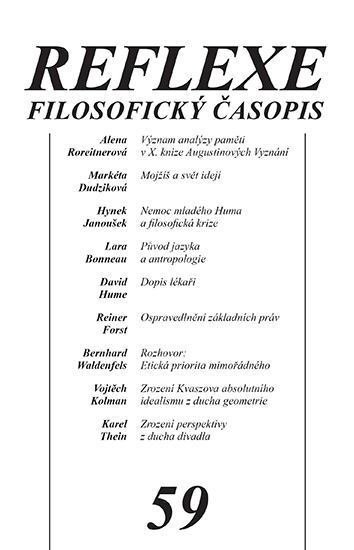Mojžíš a svět idejí. Poznání dané podle Filóna Alexandrijského izraelskému králi, zákonodárci, veleknězi a prorokovi
Moses and the Intelligible World. Knowledge Given to the King of Israel, the Lawgiver, the High Priest and the Prophet according to Philo of Alexandria
Author(s): Markéta DudzikováSubject(s): Ancient Philosphy
Published by: Univerzita Karlova v Praze, Nakladatelství Karolinum
Summary/Abstract: Philo of Alexandria provides our first extant testimony of the theory of Forms interpreted as the thoughts of God. Though Philo is probably not the founder of such an interpretation, he employs it when presenting the Pentateuch to his Hellenistic audience. The present study deals with the role of Forms or intelligible patterns in Philo’s portrayal of Moses. In Philo’s On the Life of Moses (De vita Mosis), Moses is characterized as an ideal king, lawgiver, high priest and prophet. The pattern that was revealed to Moses on the Mount Sinai is identified with the noetic cosmos, in accordance with which God created our world, and Philo regards the knowledge of the intelligible patterns as a source of Moses’ mission: The Law of Moses, the Jewish sanctuary as well as Moses’ own life are based on his knowledge of the intelligible patterns. In a similar way, Philo presents the Hebdomad as an eternal idea and connects the Jewish celebration of the Sabbath not only with the seventh day of the creation of the world but also with Moses’ prophecy during Israel’s pilgrimage in the desert. In this way, Philo uses the Platonic and the Pythagorean concepts to depict Moses as a philosopher who transmits the knowledge of the eternal Forms to everyone.
Journal: Reflexe
- Issue Year: 2020
- Issue No: 59
- Page Range: 53-79
- Page Count: 27
- Language: Czech

